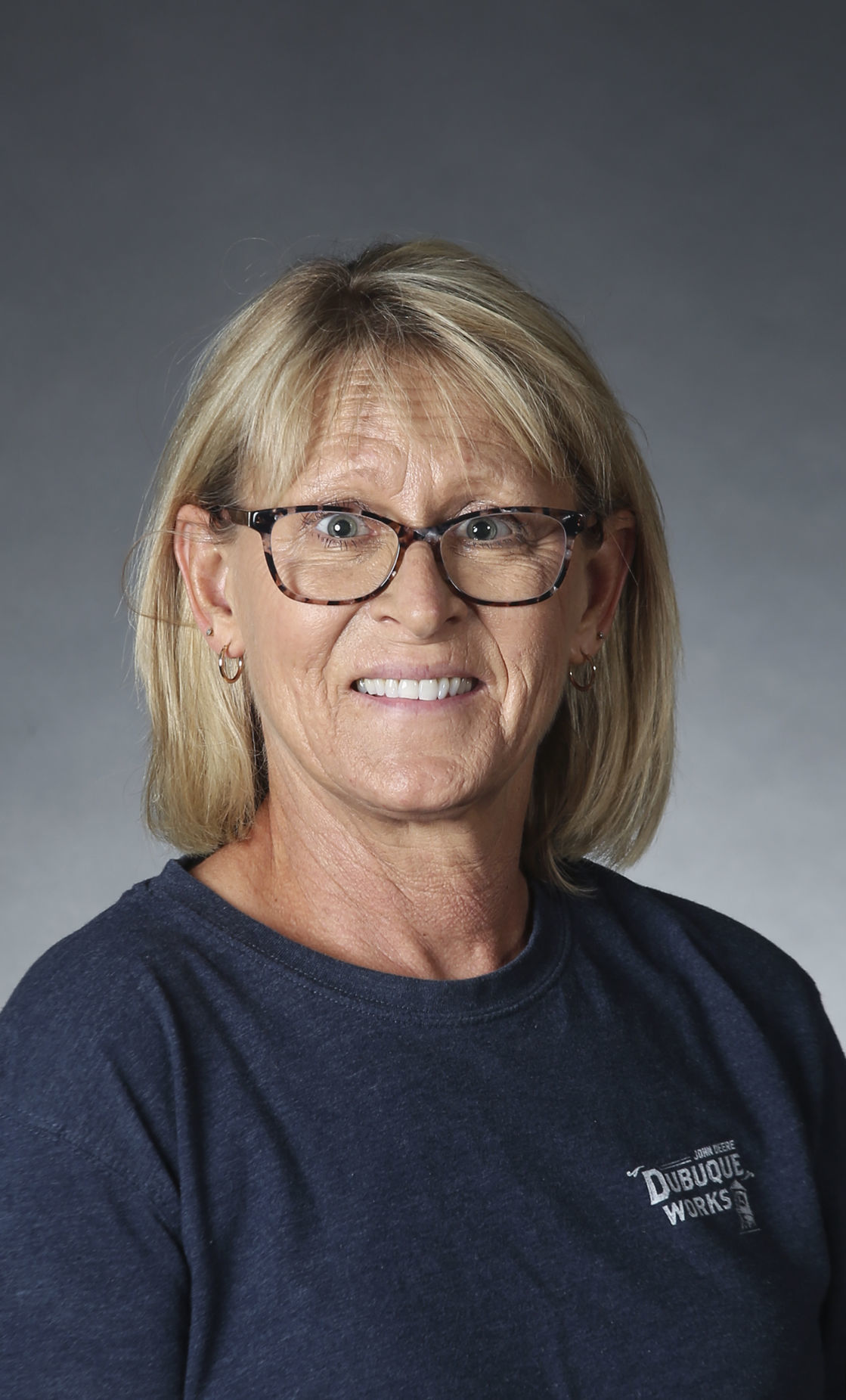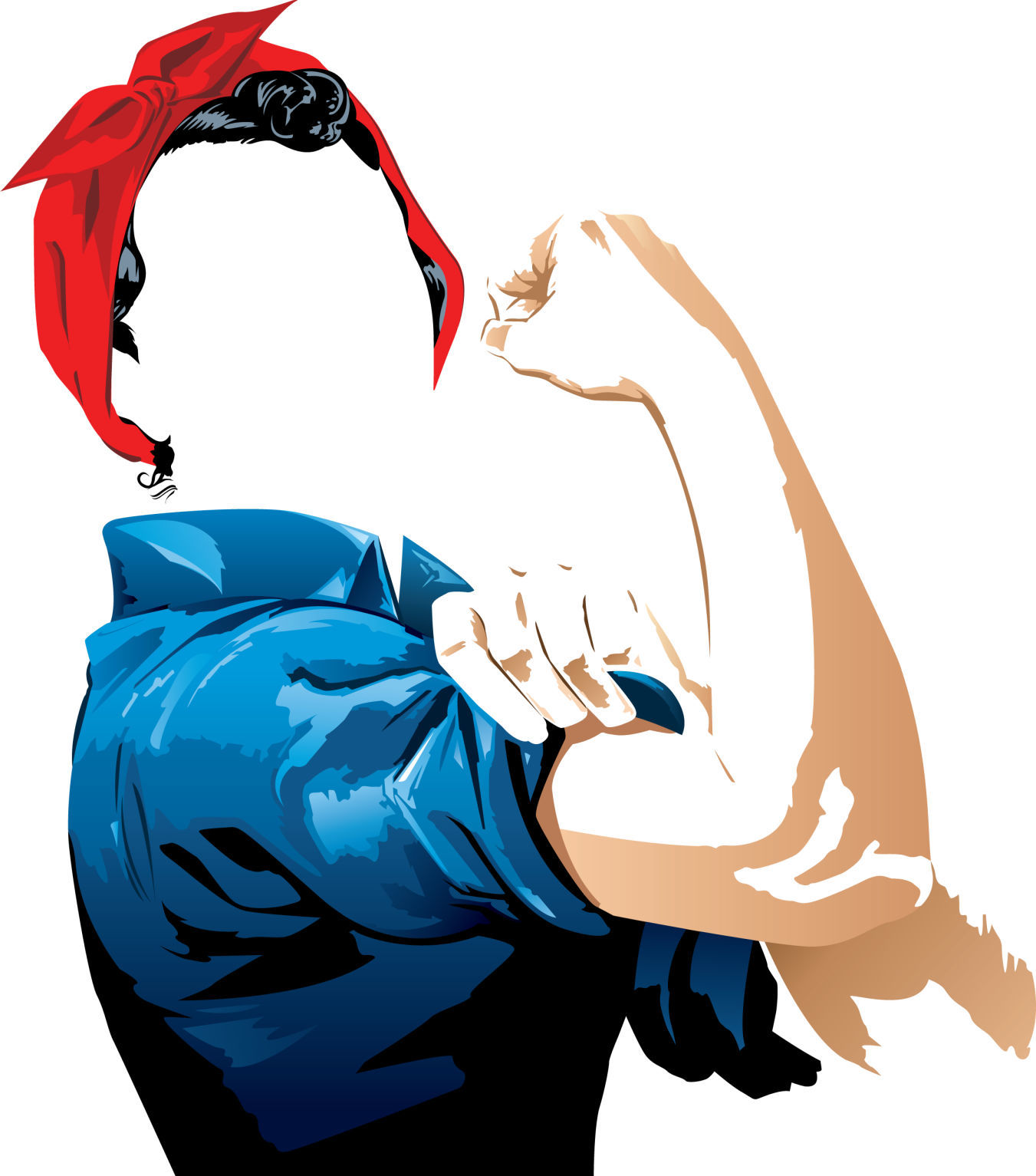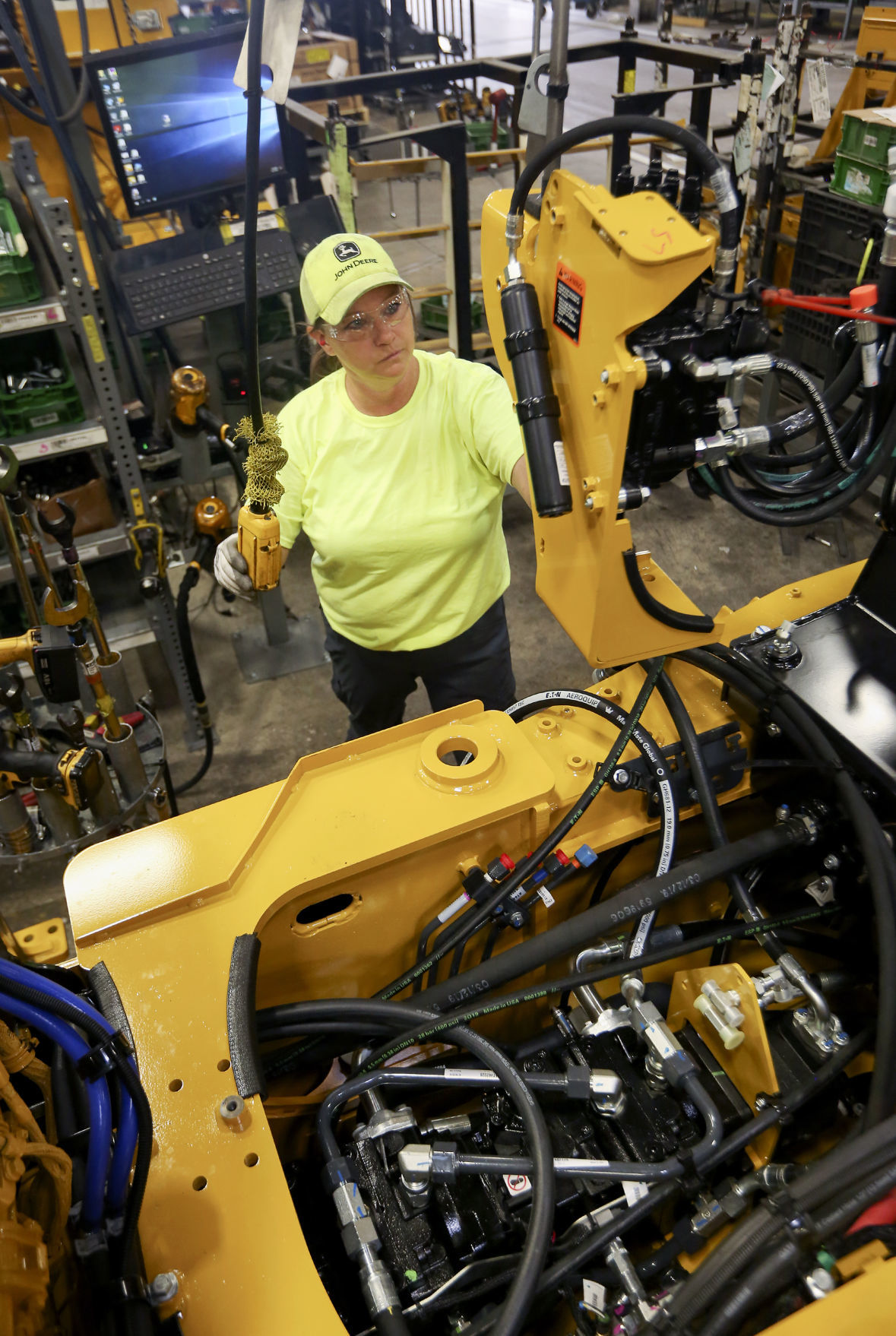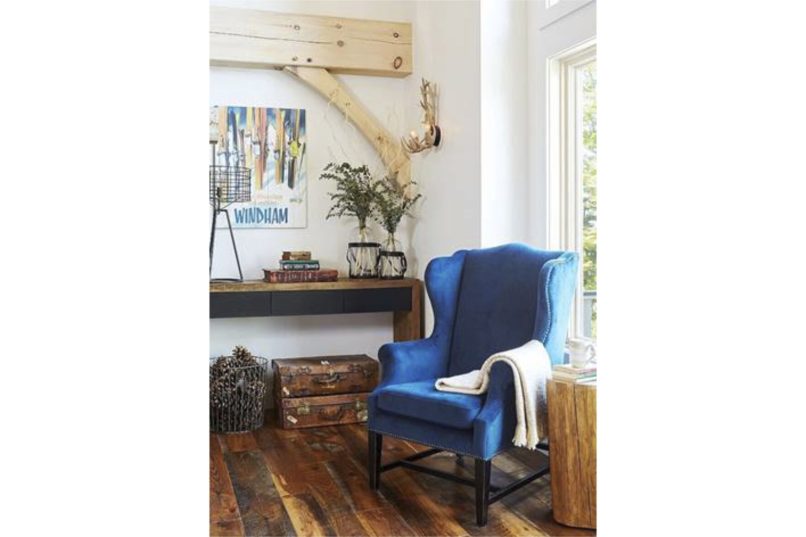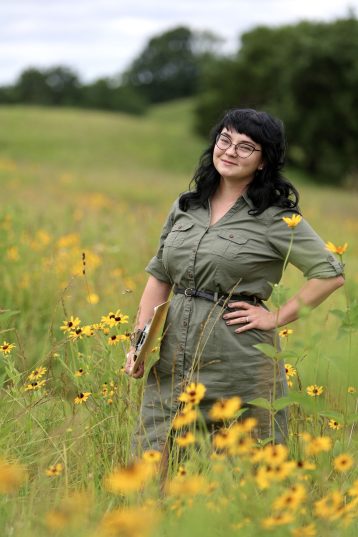Candie Minnick is a woman who isn’t afraid to get her hands dirty — literally.
The 52-year-old has made a lifelong career in the manufacturing industry, first with FDL Foods and for the past 15½ years in various building and assembly roles with John Deere Dubuque Works.
Today, she works as a cog in the line that assembles utility dozers, continuous-tracked tractors that push soil, sand, rubble or other materials.
“It’s fast-paced, tough work,” admitted Minnick, who said she stays in shape between shifts by doing hand and arm exercises. “I come home dirty and smelling like an automotive shop — some days full of diesel and hydraulic oil. If you don’t like to get dirty, this wouldn’t be for someone that is considering applying.”
Closing the gap
Minnick represents a slow but steadily growing number of women who have found their way into such career fields since World War II, when they were called upon to fill vacancies in factories and shipyards left by men who enlisted in the war effort. Images such as that of Rosie the Riveter were used to appeal to women’s sense of patriotism and draw them into the workforce.
Although many women were replaced by men at the conclusion of the war, others remained as the role of women in the workforce evolved.
According to the Bureau of Labor Statistics, the labor force participation rate for women as of 2015 was 56.7%, with men making up 69.1%. Women also were reportedly earning 81% compared to that of their male counterparts — up from 19% in 1979.
Yet, even with advancements in automation, women represent less than 30% of workforce when it comes to manufacturing. However, with a growing need to fill jobs in that industry and an emphasis in STEM-related education for young girls, women might find themselves in more of those roles as soon as the next decade.
Minnick said that several women can be found filling manufacturing roles at John Deere.
“For someone that has never worked in a factory setting, you will get training,” she said. “John Deere is good about having someone work with you until you get the job down.”
‘Just one of the guys’
Minnick applied to John Deere Dubuque Works on a whim, she said, citing her vast knowledge and experience filling of variety of manufacturing roles in her previous position with FDL Foods.
“I was in a utility position, where I would have to learn the jobs of various departments and be able to fill in if someone was missing,” she said. “So, it was about developing a universal understanding.”
It made her an appealing candidate to John Deere Dubuque Works. It also provided Minnick with the financial support and benefits she was seeking and the ability to balance work with being a young, single mother and primary breadwinner for her family.
After remarrying, Minnick stayed on with John Deere Dubuque Works and has worked on several products for the company, as well as special projects, and has assisted in the training of new employees.
“I always try to show them easier ways to do the job and ways to do it so they don’t get hurt,” she said. “Doing repetitious work can be hard on you, so I try to show them different ways to avoid injuries.”
And when it comes to a working dynamic, Minnick described herself as “just one of the guys,” having grown up around more boys than girls in her neighborhood.
“When I first started there, there weren’t as many women, and those women that did work there did things like drive forklifts,” she said. “But as the years have gone on, more and more women have been hired.
“We’re different kind of workers. I had a supervisor say to me once that he’d love to hire more women. He could come up and talk to a woman on the job and she’d keep working, while a man might stop and prop his foot up on something. But when it comes to the women and men working together, I think we all value what we do and we all value making a good product. At the end of the day, we can all talk shop. But as women, we all have to stick together and support each other.”
When Minnick isn’t helping assemble John Deere Dubuque Works equipment, she enjoys spending time with her husband and three children — now 26, 28 and 34 — and four grandchildren, all younger than 4.
She also enjoys gardening, live music and tending to her three cats and “one big dog.”
“I think what this whole experience did for me was make me very independent,” Minnick said of her role at John Deere. “You have to have a thick skin.”
A woman’s place
In addition to Minnick, Luann Ehrler has worked for John Deere Dubuque Works for 16 years, helping assemble skid steers.
“It is very hard work,” she reiterated. “But it’s a good place to work. There are great benefits to it.”
Ehrler, 57, also said that in her nearly two decades with the company, she has seen an increase in women taking on roles once predominantly held by men.
Her reasoning behind it is simple: “Because they can.”
“I think if women can do it, they should do it,” Ehrler said. “There’s a different outlook today about women in those roles. More and more are doing it.”
Kim Kluga agreed. She has run machinery at Andersen Windows & Doors in Dubuque for more than 20 years. But she, too, has held various manufacturing positions within the company.
“There are quite a few women there,” Kluga said. “Especially for women who were single parents, like I was back then, it gave them the means and the benefits to help support their family, as well as the time they needed to be with their kids.”
It also gave women an opportunity to prove themselves when it came to work often thought to be catered toward men.
“I think the more women proved themselves, the more men have grown to accept that women can do what men can do,” Kluga said. “Today, I don’t feel like it as seen as much as an invasion of ‘men’s jobs.’ I think women are there to say, ‘I’m here to do my best work and get paid, just like you.’ We don’t have to be scared to try.”
Megan Gloss writes for the Telegraph Herald.

